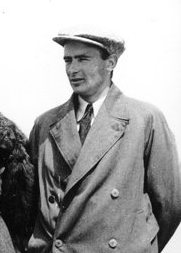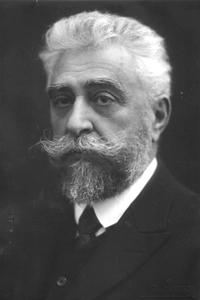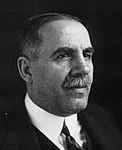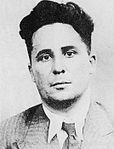The Democratic Party is a center-right party in Bulgaria led by Alexander Pramatarski. The party is a member of the European People's Party (EPP).

Parliamentary elections were held in Norway on 9 and 10 September 1973. The Labour Party remained the largest party, winning 62 of the 155 seats in the Storting.

Parliamentary elections were held in Greece on 11 December [O.S. 28 November] 1910, following elections in August. The Liberal Party won 307 of the 362 seats. Eleftherios Venizelos remained Prime Minister, having assumed office on 18 October.

Parliamentary elections were held in Greece on 19 August 1928. The result was a victory for the Liberal Party, which won 178 of the 250 seats.

Parliamentary elections were held in Greece on 31 March 1946. The result was a victory for the United Alignment of Nationalists, an alliance that included the People's Party, the National Liberal Party, the Reform Party, which won 206 of the 354 seats in Parliament. As a result Konstantinos Tsaldaris became Prime Minister leading a right-wing coalition. Nonetheless, he soon decided to resign in favor of Themistoklis Sophoulis, who led a government of national unity during the entire second phase of the civil war (1946–1949). One of the priorities of the new government was the proclamation of a plebiscite for the restoration of the Greek monarchy.
Senate elections were held in Greece on 21 April 1929. The Senate was a new institution introduced with the Greek Constitution of 1927 and these were the first elections for it. The result was a victory for the Liberal Party, which won 64 of the 92 seats. It was regarded as a public approval of the policies of Prime Minister Eleftherios Venizelos.

Parliamentary elections were held in Iceland on 25 June 1978. The Independence Party remained the largest party in the Lower House of the Althing, winning 14 of the 40 seats. Following the election a coalition was formed between the People's Alliance, Social Democratic Party and the Progressive Party with Ólafur Jóhannesson as Prime Minister.

General elections were held in Belgium on 1 June 1958. The result was a victory for the Christian Social Party, which won 104 of the 212 seats in the Chamber of Representatives and 53 of the 106 seats in the Senate. Voter turnout was 93.6% in the Chamber election and 93.7% in the Senate election. Elections for the nine provincial councils were also held.

General elections were held in Belgium on 26 March 1961. The result was a victory for the Christian Social Party, which won 96 of the 212 seats in the Chamber of Representatives and 47 of the 106 seats in the Senate. Voter turnout was 92.3%. Elections for the nine provincial councils were also held.

Full general elections were held in Belgium on 14 October 1894, with run-off elections held on 21 October 1894.

Parliamentary elections were held in Bulgaria on 4 September 1911. The result was a victory for the People's Party-Progressive Liberal Party alliance, which won 190 of the 213 seats. Voter turnout was 47.2%.

Parliamentary elections were held in Bulgaria on 24 November 1913. The result was a victory for the Liberal Concentration, an alliance of the Liberal Party (Radoslavists), the People's Liberal Party and the Young Liberals Party, between them won 88 of the 204 seats. Voter turnout was 55.0%.

Parliamentary elections were held in Bulgaria on 23 February 1914. The result was a victory for the Liberal Concentration, an alliance of the Liberal Party, the People's Liberal Party and the Young Liberals Party, which won 126 of the 245 seats. Voter turnout was 67.1%.

General elections were held in Romania between 1 and 3 March 1922. In the first stage between 1 and 3 March, seats in the Senate were elected. In the second stage between 5 and 7 March the Chamber of Deputies was elected, and in the third and final stage from 9 to 11 March, additional Senate seats were elected. The result was a victory for the governing National Liberal Party, which won 222 of the 372 seats in the Chamber of Deputies and 111 of the 148 seats in the Senate.

General elections were held in Romania in June 1931. The Chamber of Deputies was elected on 1 June, whilst the Senate was elected in three stages on 4, 6 and 8 June. The result was a victory for the governing National Union, an alliance of the National Party, the National Liberal Party, the German Party, the Agrarian Union Party, the Vlad Ţepeş League, the Agrarian League and several other parties. The Union won 289 of the 387 seats in the Chamber of Deputies and 108 of the 113 seats in the Senate elected through universal vote. The five seats won by the Communist-dominated Peasant Workers' Bloc were ultimately invalidated by the new Parliament.

The Liberal Party, also known as the Radoslavists was a political party in Bulgaria from 1887 until 1920.
The Progressive Party was a political party in Greece in the 1920s and 1930s led by Georgios Kafantaris.
The Farmers' Party was a political party in Greece in the 1920s and 1930s.

The Republican Evolutionist Party, commonly known as the Evolutionist Party, was a political party in Portugal led by António José de Almeida.



















